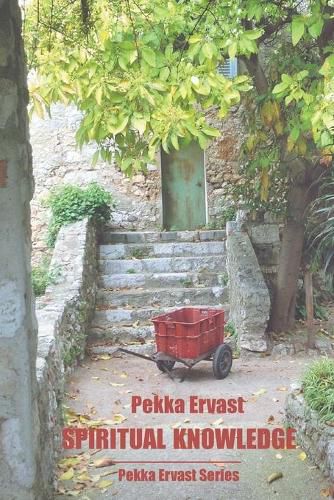Readings Newsletter
Become a Readings Member to make your shopping experience even easier.
Sign in or sign up for free!
You’re not far away from qualifying for FREE standard shipping within Australia
You’ve qualified for FREE standard shipping within Australia
The cart is loading…






This title is printed to order. This book may have been self-published. If so, we cannot guarantee the quality of the content. In the main most books will have gone through the editing process however some may not. We therefore suggest that you be aware of this before ordering this book. If in doubt check either the author or publisher’s details as we are unable to accept any returns unless they are faulty. Please contact us if you have any questions.
In all times people have believed that human exists after death and that there is an invisible world. There have also been people who have sought and found answers about the purpose of existence, life after death and the spiritual realm.
Finnish writer Pekka Ervast describes the requirements for spiritual knowledge on the basis of Indian Vedanta philosophy and Christian occultism. In the first stage knowledge from the visible and invisible world is gained through the senses. In the second stage the truth seeker becomes self-aware in the invisible world. And finally in the third stage human becomes one with God - the spirit of Brahman, and gains the highest knowledge attainable.
The first chapters examine the purpose and structure of both the presently existing as well as the yet dormant senses of a human being. The following chapters examine the yoga practices of Patanjali and their influence on human constitution. And finally Ervast examines the life after death and the experiences which one faces on the spiritual path.
Pekka Ervast (1875-1934), Founder and General Secretary of the Finnish section of The Theosophical Society, Founder-President of the Finnish Rosicrucian Society, 33 degree founder-member of the Finnish section of the International Order of Freemasonry Le Droit Humain. Founder-President and Grand Master of the Finnish Rosicrucian Freemasonry.
$9.00 standard shipping within Australia
FREE standard shipping within Australia for orders over $100.00
Express & International shipping calculated at checkout
Stock availability can be subject to change without notice. We recommend calling the shop or contacting our online team to check availability of low stock items. Please see our Shopping Online page for more details.
This title is printed to order. This book may have been self-published. If so, we cannot guarantee the quality of the content. In the main most books will have gone through the editing process however some may not. We therefore suggest that you be aware of this before ordering this book. If in doubt check either the author or publisher’s details as we are unable to accept any returns unless they are faulty. Please contact us if you have any questions.
In all times people have believed that human exists after death and that there is an invisible world. There have also been people who have sought and found answers about the purpose of existence, life after death and the spiritual realm.
Finnish writer Pekka Ervast describes the requirements for spiritual knowledge on the basis of Indian Vedanta philosophy and Christian occultism. In the first stage knowledge from the visible and invisible world is gained through the senses. In the second stage the truth seeker becomes self-aware in the invisible world. And finally in the third stage human becomes one with God - the spirit of Brahman, and gains the highest knowledge attainable.
The first chapters examine the purpose and structure of both the presently existing as well as the yet dormant senses of a human being. The following chapters examine the yoga practices of Patanjali and their influence on human constitution. And finally Ervast examines the life after death and the experiences which one faces on the spiritual path.
Pekka Ervast (1875-1934), Founder and General Secretary of the Finnish section of The Theosophical Society, Founder-President of the Finnish Rosicrucian Society, 33 degree founder-member of the Finnish section of the International Order of Freemasonry Le Droit Humain. Founder-President and Grand Master of the Finnish Rosicrucian Freemasonry.